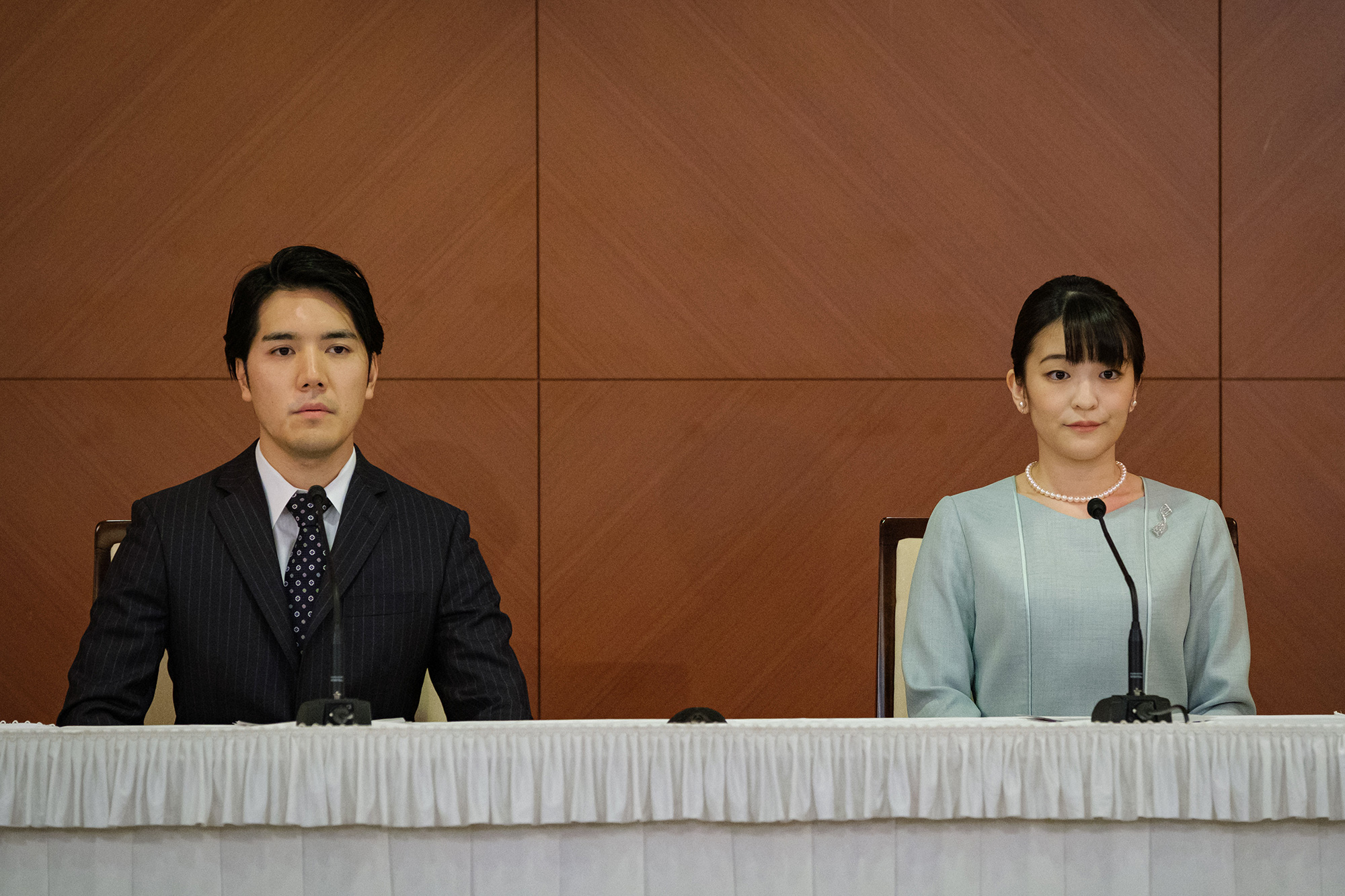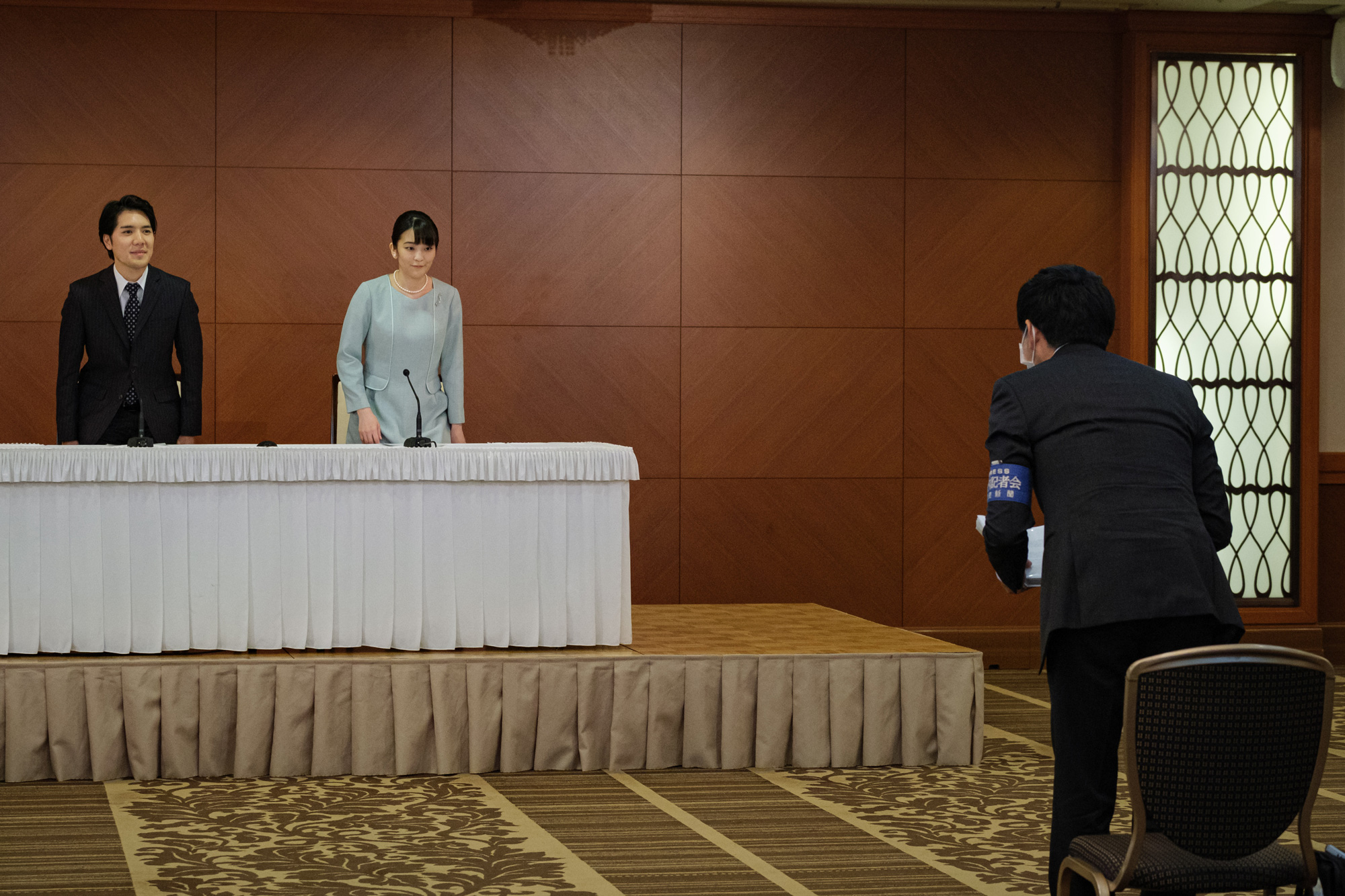Issue:
December 2021
Japan’s media should reflect on their coverage of Mako and Kei Komuro

The media coverage and public opinion surrounding the marriage of Mako, the eldest daughter of Crown Prince Akishino, and Kei Komuro was appalling. It made me think again about the Japanese media and their awareness of human rights.
The media had been critical ever since financial problems involving Komuro’s mother and her former fiancé were reported in a weekly magazine. This included online attacked targeting Kei Komuro and Mako, who went through with their marriage despite strong opposition.
The Imperial Household Agency has said that Mako developed complex post-traumatic stress disorder as a result of the intense media scrutiny. We know from painful experience that when society continues to rail against young people and conduct what amounts to a character assassination, it can cause serious physical and mental damage.
Last year, Hana Kimura, a professional wrestler, took her own life after suffering from abusive trolling on social media. Hasn’t our society reflected on how this kind of slander hurts young people and has serious consequences?
For a start, it is a human right to be able to marry whomever you like. Marriage and love are the most important choices directly affecting our happiness. Attempting to deny this right to Mako and Kei Komuro was like looking at the hands of a clock that had been turned back to the feudal era.
Article 24 of the constitution stipulates that “marriage shall be based solely on the consent of the parties concerned”. The attempt to obstruct this through public opinion shows the low level of awareness of human rights in Japan.
Given that Mako was, until recently, a member of the imperial family, there were calls for her to marry in accordance with "society’s expectations". But if she is required to marry according to something as vague as people’s expectations – and if she is denigrated for violating those expectations – then no one in the imperial family will ever be able to marry with peace of mind.
Who in their right mind would want to stay in the imperial family, where they are forced to live in a way that denies their personality? And who would dare to pick up chestnuts in the fire and marry a high-profile member of the family?
In the real world, no one is perfect. We are all human, with our own immaturities and flaws. This is even truer for young people. There is no such thing as human perfection, a state in which with all your relatives, including your ancestors, have never had problems or made mistakes. That means it is impossible to find a perfect person as a spouse.
In addition, the “financial trouble” that became an issue did not involve Komuro himself, but his mother. Parents and children are independent personalities, even if they live together, and the idea that society should condemn a child or deny them the freedom to marry the person of their choice because of a parent’s troubles is, frankly, frightening.
The idea that it was okay to criticize Mako because her marriage would involve the use of taxpayers’ money is similarly dangerous.

Although the circumstances are different, the way public opinion works in this situation is similar to the phenomenon of welfare bashing - criticism of how welfare recipients live their lives, the intrusion into their privacy, finding fault with their every move and blaming them for the way they spend their days.
There should be debate about the status of the imperial family and how taxpayers’ money is spent on them. However, the idea that people who live off the public purse should not be afforded the freedom to live their lives as they see fit – and instead live as public opinion dictates – is extremely dangerous.
Outrageous criticism, even of members of the imperial family, strangles us and robs us of our own freedom. I think we should be aware of that.
It is the Japanese media, above all, that are responsible for creating such an abnormal situation. Some media outlets have profited enormously by reporting or contributing to reports that demean the personalities of two young people who wish to marry, denying them a bright future. Komuro’s every move was scrutinized and attacked, both before and after he returned to Japan to marry Mako. The result was a media scrum. The more the media pandered to public opinion and reported negatively, the higher their ratings and online views went.
It is hard to describe this situation as anything other than mass bullying. How can we reflect on the fact this kind of reporting guided public opinion and stirred up unprecedented ill feeling towards the couple just as they were about to begin their lives together?
It would have been difficult for Mako to file a defamation lawsuit against a private news organization while she was still a member of the imperial family, no matter how unfair and untrue the reports were. As a result, the media must answer serious questions about their attempts to profit from their appalling treatment of Mako, even though they knew they were dealing with someone who could not fight back.
Japan’s news media should do a better job of reporting against those in power. There are many more social issues they could address. The current situation of helping the strong and discouraging the weak is nothing short of a corruption of media ethics and a violation of the spirit of journalism.
The media should assess their reporting of the Komuros’ marriage. Will it be acceptable for them to go after their next prey in the same way, without reflecting deeply on what they have done? The time has come for the news organizations to conduct a sincere examination of the Komuro episode and reconsider the nature of their reporting, which should be based on human rights and the true spirit of journalism.
Kazuko Ito is a Tokyo-based human rights lawyer and secretary-general of Human Rights Now.

